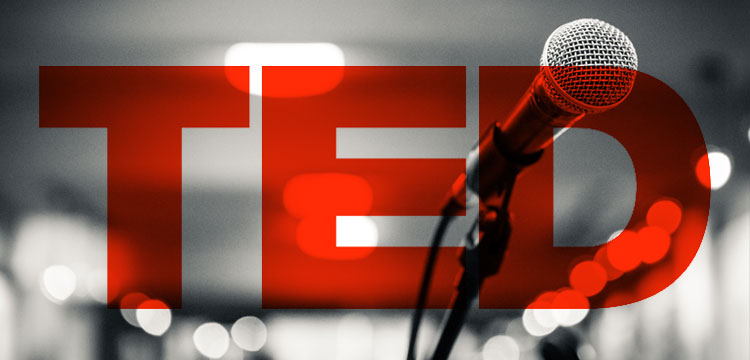BS or BA in Psychology: Why One Is Right for You?
Stuck choosing between a BS or BA in psychology? Discover the key differences and find out which degree path aligns with your career goals and interests.

If you plan to earn an undergraduate degree in psychology, you may be faced with the decision between a BS or BA in psychology.
A bachelor’s degree in psychology usually takes four years to complete, but some people may take three to five years to finish. Two of the most common types of bachelor’s degrees are the BS (Bachelor of Science) and BA (Bachelor of Arts).
How are the two degrees different? Are there any advantages to choosing one over the other?
The type of degree you choose may depend on a variety of factors. The curriculum for each type of degree can vary, so it’s worth it to consider which one might be right for you in terms of your future educational and career plans. Let’s explore how the BS and BA degrees in psychology are differ, the types of courses you will take for each path, and how to determine which one might be best for you.
Key Takeaways:
- A BS in psychology focuses on science, research, and math, making it ideal for students interested in experimental psychology, neuroscience, or research-based careers.
- A BA in psychology emphasizes liberal arts and humanities, preparing students for careers in counseling, social work, or fields that prioritize communication and interpersonal skills.
- The choice between a BS and BA in psychology should depend on your career goals, with the BS offering a more science-heavy curriculum and the BA providing flexibility for diverse electives.
- Both degrees offer valuable skills and open doors to a variety of career opportunities, but consulting an academic advisor can help you decide which path aligns with your interests.
BS or BA in Psychology: Key Differences
A BS in psychology focuses on science, research, and quantitative methods, preparing students for careers in research, healthcare, or graduate studies in fields like neuroscience or experimental psychology. In contrast, a BA in psychology emphasizes liberal arts, offering a broader education that suits careers in counseling, social work, or human resources. Choosing between a BS and BA depends on your career goals, with the BS offering a research-oriented path and the BA providing more flexibility in elective courses and human-focused roles.
To decide which degree is right for your needs, it’s important to understand the key differences between a BS or BA in psychology.
- BS in Psychology stands for Bachelor of Science in Psychology
- BA in Psychology stands for Bachelor of Arts in Psychology
| BS in Psychology | BA in Psychology |
| Emphasis on scientific and research-oriented approach, with coursework in experimental psychology, neuroscience, and statistics. | Emphasis on liberal arts approach, with coursework in social psychology, cultural psychology, and the history of psychology. |
| Strong emphasis on research methods and quantitative skills, preparing students for graduate studies or research-focused careers. | Focus on understanding research methods and applying psychological principles in various contexts, with opportunities for research experience. |
| Suitable for careers in research, data analysis, and positions requiring strong analytical and research skills. Also prepares students for graduate studies in experimental psychology, neuroscience, or related fields. | Offers diverse career paths in human resources, counseling, social work, marketing, education, and community outreach, among others. Suitable for entry-level positions and roles that value communication and interpersonal skills. |
| Requires coursework in advanced math (e.g., statistics) and natural sciences (e.g., biology, chemistry) to support research methods and data analysis. | May have fewer requirements in math and science, offering flexibility for students who prefer a more humanities-oriented approach or have less interest in quantitative methods. |
| Provides opportunities for practical application of psychological principles through research projects, internships, and laboratory experiences. | Emphasizes applied skills such as communication, critical thinking, and interpersonal skills, preparing students for roles that involve working directly with people or in community settings. |
| Well-suited for students interested in pursuing graduate studies in experimental psychology, neuroscience, or other science-focused fields. | Provides a solid foundation for graduate studies in various areas of psychology, counseling, social work, education, or related disciplines. May require additional coursework or experiences to meet specific graduate program requirements. |
| May offer fewer elective options due to required coursework in math, science, and research methods. | Provides more flexibility for elective coursework, allowing students to explore diverse areas of psychology or combine psychology with other disciplines. |
| Ideal for students with a strong interest in the scientific aspects of psychology, such as understanding the brain, cognition, or behavior from a research perspective. | Suitable for students who are interested in understanding human behavior within social and cultural contexts, exploring diverse areas of psychology, or pursuing careers that value communication and interpersonal skills. |
BS in Psychology
A Bachelor of Science in Psychology typically focuses more on science and research. Instead of taking more liberal arts and humanities courses as part of the general education component of your degree, you’ll focus more on classes in science, research, and mathematics.
The reason you might opt for a BS in Psychology is so that you can build a solid understanding of important scientific concepts. This can be great preparation if you are planning to enter a career in research, health, or an applied field.
The BS in Psychology can also be a great choice if you are planning to pursue further graduate study in a scientific field.
Reasons to Earn a BS in Psychology
A BS in Psychology is geared toward getting students ready for careers that are related to clinical work and research. This can be a great choice if you want to become a researcher or clinician.
Some other reasons you might opt for a BS in psychology include:
Interest in Science
The BS in Psychology typically focuses much more on research and the scientific approach. If you love science and see yourself working in a field like experimental psychology, a BS degree might be the best fit. It can give you the background in statistics and scientific methods that you need to succeed.
Great Prep for Grad School
If you plan to pursue a science-focused graduate degree, you might want to opt for the BS undergrad degree. Such programs often prefer applicants with a BS background since they have already met many of the prerequisites needed for admission.
So, if you plan to get a master’s or doctoral degree in psychology or a related field, having a BS in Psychology can be a big advantage.
Career Opportunities
You might also find more career opportunities in scientific fields if you have a BS in Psychology degree. Such jobs might include positions in market research, research assistantships, or data analytics. Jobs in healthcare, business, and human resources can also benefit from a strong scientific background.
Flexibility
The BS in Psychology is also a flexible option that opens up a lot of opportunities in terms of what you might do in the future. If you decide to explore other fields later, having a background in math and science can be very helpful.
BA in Psychology
A BA in psychology degree tends to be more general and focuses on liberal arts and humanities classes. To fulfill the general education portion of your degree, you will likely take classes in topics such as foreign languages, writing, communication, and political science.
A Bachelor of Arts degree can be a great choice if you want a broad background in other disciplines. It can also be helpful if you are planning on a career or graduate study in areas like business, law, or communications.
Reasons to Earn a BA in Psychology
A BA in Psychology is often the choice of students who are interested in human-focused careers that benefit from strong interpersonal and communication skills. Some reasons why you might opt for this degree option include:
Focus on Humanities and Liberal Arts
A BA in Psychology usually places a much greater emphasis on liberal arts and humanities courses. In terms of psychology classes, it may also incorporate more coursework in areas like social psychology, history of psychology, and cultural psychology. This can be a great choice for people who want to know more about the social and cultural contexts that underlie human behavior.
Graduate School and Career Options
If you plan to pursue a career in law, business, politics, social work, or education, a BA in Psychology can provide the broad background you need to succeed.
Less Emphasis on Math and Science
If you prefer liberal arts over science, the BA option can be a great choice. This can be an appealing choice for students who might not feel as comfortable with quantitative methods and experimental methodology.
Career Preparation
If you are thinking of becoming a counselor or therapist, having background knowledge in areas like social behavior, culture, history, and languages can be helpful.
Transferable Skills
The BA in Psychology degree often stresses critical thinking, interpersonal skills, and communication skills. Such skills are highly valued in various careers, including areas such as social services and counseling.
Career Options With a BS in Psychology
A BS in Psychology can provide preparations for a range of careers that rely on research skills and critical thinking. Some that you might opt to pursue with this degree include:
- Research Assistant: Assisting in research projects by collecting data, analyzing results, and contributing to study design in academic, government, or private research settings.
- Data Analyst: Analyzing and interpreting data related to human behavior to inform decision-making in various industries, such as healthcare, marketing, or finance.
- Behavioral Health Technician: Providing support and assistance to individuals with mental health or behavioral disorders in healthcare settings, residential facilities, or community centers.
- Corrections Officer/Probation Officer: Supervising individuals on probation or parole, assessing their needs, and connecting them with resources for rehabilitation within the criminal justice system.
- Applied Behavior Analyst: Working with individuals with autism spectrum disorder or developmental disabilities to assess behavior, develop intervention plans, and implement behavior modification techniques.
Career Options with a BA in Psychology
A BS in Psychology, a BA in Psychology can provide excellent preparation for a wide range of careers. A few options you might want to consider include:
- Career Counselor: Helping individuals explore career options, assess skills and interests, and develop career plans through counseling sessions and workshops.
- Youth Worker: Providing support and guidance to children and adolescents in schools, community centers, or youth organizations to promote positive development.
- Community Outreach Coordinator: Developing and implementing programs to address social issues, promote community engagement, and advocate for underserved populations.
- Social Services Assistant: Helping individuals and families access social services and assistance programs, such as housing support or financial aid.
- Admissions Counselor: Assisting prospective students with the college admissions process, providing information about academic programs, requirements, and financial aid options.
The above options are just a few examples of the many career paths someone with a BS or BA in Psychology might pursue. The versatility of a psychology degree, combined with transferable skills such as critical thinking, communication, and problem-solving, opens up opportunities in diverse fields and industries.
BS or BA in Psychology: How to Choose
Before you decide whether a BS or BA in Psychology is right for you, spend some time thinking about your future plans. Then, talk to your academic advisor. They can offer advice and suggestions about which degree option might be best and help you plan your class schedule to ensure that you get all the classes that you need to graduate.
Whether you decide to pursue a BS or BA in Psychology, your degree can be a step toward further study or a great career. A BS in Psychology might be the right option if you love science and see yourself working in a research-related field. If you are more interested in liberal arts and see yourself in a human-focused role, the BA in Psychology could be a better choice. No matter what you pick, taking the time to think about your goals and interests can ensure that you make the right decision for your needs.
EXPERT PICKS: WHAT TO READ NEXT
- Jobs with a Bachelor’s Degree in Psychology: Wondering what you can do with a bachelor’s in psychology? Here are just a few great ideas.
- 20 Great Mental Health Jobs to Consider: Explore some of the best job options if you want to work in mental health.
- Applied Psychology Careers to Consider: If you’d rather put your skills to work solving real-world problems, there are also plenty of solid options.






